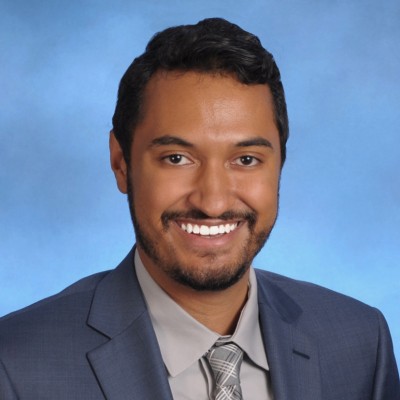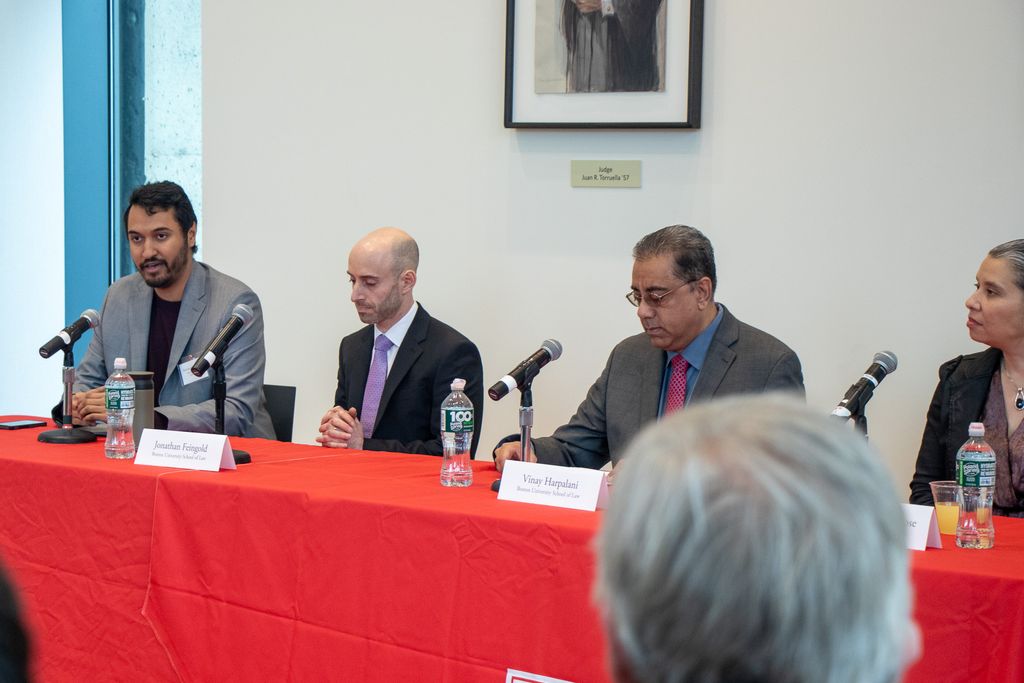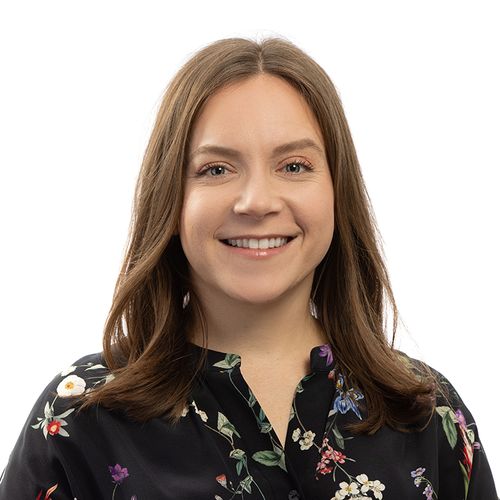A Switchback toward Progress
Keenan Hunt-Stone (’24) sees the law as his best path forward for impactful change.

A Switchback toward Progress
Keenan Hunt-Stone (’24) sees the law as his best path forward for impactful change.
For many members of this year’s graduating class, the decision to apply for law school was made during a pivotal time in history. The JDs graduating in May of 2024 were likely starting to decide their next career steps in March of 2020, when the global pandemic began. By May of 2020, racial violence and police brutality had fully ignited the Black Lives Matter movement. The disparities in our society were glaring and drove many to strive to bring systemic change through a legal education.
One such member of the BU Law class of 2024 is Keenan Hunt-Stone, who decided to shift from studying physics to lawyering and studying education law. The Record talked with Keenan about his path to law school and his plans for after graduation.
Q&A
with Keenan Hunt-Stone
The Record: Can you tell us about your academic background and what drove you to law school?
Physics was my favorite class in high school, so I majored in it in undergrad at Howard University. Four years didn’t feel like enough to learn everything, so I continued studying physics in grad school at the University of Colorado Boulder. I got to do cool research working in accelerator physics.
At the same time, the research cycle can be pretty demoralizing. It’s weeks and weeks and weeks of no progress. And then one day, everything goes perfectly, and then back to no progress. Those perfect days were getting a little too far and in between.
Coincidentally, it was March of 2020 when I was reassessing my plans and taking my last master’s exam. Then the George Floyd murder sparked the racial justice movement.
I participated in discussions at the University of Colorado about improving DEI efforts in admissions, but I felt I could make more of an impact. I ultimately settled on going to law school.
The Record: Do you have any favorite classes or professors that you will remember fondly?
The Access to Justice (A2J) program was phenomenal. I got a lot of hands-on lawyering experience. I worked with Boston Public Schools addressing how they respond to racially charged incidents.
I grew up in Plattsburgh, New York, which is not very diverse. I am biracial, and it didn’t feel like there was a support structure there. I experienced racially charged incidents but never took the initiative that these kids did. It was great to see their energy and ideas and to be able to help them.
Professors Naomi Mann and Jade Brown (’16) were my mentors in the ATJ Clinic. They hype you up and provide reassurance through their support. Professor Mann has an incredible education law background, and she was always happy to have conversations about that. I was a research assistant for her as well.
From my 1L year, I’ve always remained close with my contracts Professor Rory Van Loo. I have been his research assistant, and he’s always been willing to listen to what I want out of my career and advise me on the best steps to fulfill that.
The Record: What other activities did you participate in while at BU Law?
I’ve been involved with BLSA (the BU Law Black Students Association), and in my 1L year, I was a student representative.
The Boston University Law Review (BULR) gave me this environment where people talk about the law beyond the classroom, such as law review articles or current news, such as a Supreme Court decision. I decided to run for leadership and was thankfully elected editor-in-chief.
These platforms are very powerful. I wanted to make sure that BULR was extending its platform in every way that it could. One way we achieved this was through a nontraditional response by creating a discussion about Kate Weisburd’s paper, which was about monitoring formally incarcerated persons and amendment invasions. Some of her co-scholars had been formerly incarcerated, so it was helpful to have people who have been affected talk about it. The ivory tower of a review can be very daunting, especially if you’re not used to writing in a legal format. It was nice to extend our platform in a way that everyone felt comfortable sharing their ideas.

The Record: You recently facilitated a conversation for the Boston University Law Review Symposium. Can you talk about your involvement with that?
We all read the room and knew where the Students for Fair Admissions Supreme Court decision was going. There was so much happening: Dobbs, book bans, and attacks on critical race theory. Students wanted to hear from professors and administrators about these issues and BULR provided the platform.
The Record: Do you have any hobbies that you enjoy?
Ever since I was an undergrad, I’ve been big into the outdoors. I hiked Mount Katahdin in Maine with my fiancée and our friend in September, which was a challenge. The view is worth it and we got to cheer on hikers completing the Appalachian Trail.
I love playing Dungeons & Dragons. It’s how I met my fiancée. So, opposite ends of the spectrum, in a basement inside and on top of a mountain outside.
I’ve also made a lot of great friends at BU Law that I know I’ll stay in touch with no matter how dispersed we are.
The Record: Speaking of Maine, congratulations on securing a clerkship at the United States District Court for the District of Maine with the Honorable Lance E. Walker! What made you choose to clerk after graduation?
Thank you. My 1L faculty connection was Jessica Silbey; she’s a big part of how and why I landed my clerkship. After hearing my many different interests, she suggested I clerk for a year and experience different kinds of law. Judge Walker seems like he’ll be an amazing mentor, and I can’t wait to start working for him.
The Record: Do you have plans for once the clerkship is finished?
I enjoyed seeing the intellectual property side of things during my 2L summer at WilmerHale and hope to return after my clerkship. And I also love that they have a commitment to pro bono. It will be a great place to explore all my passions.

